Martin Scorsese Explains Why He Believes Comic Book Movies Are A Danger To Our Culture
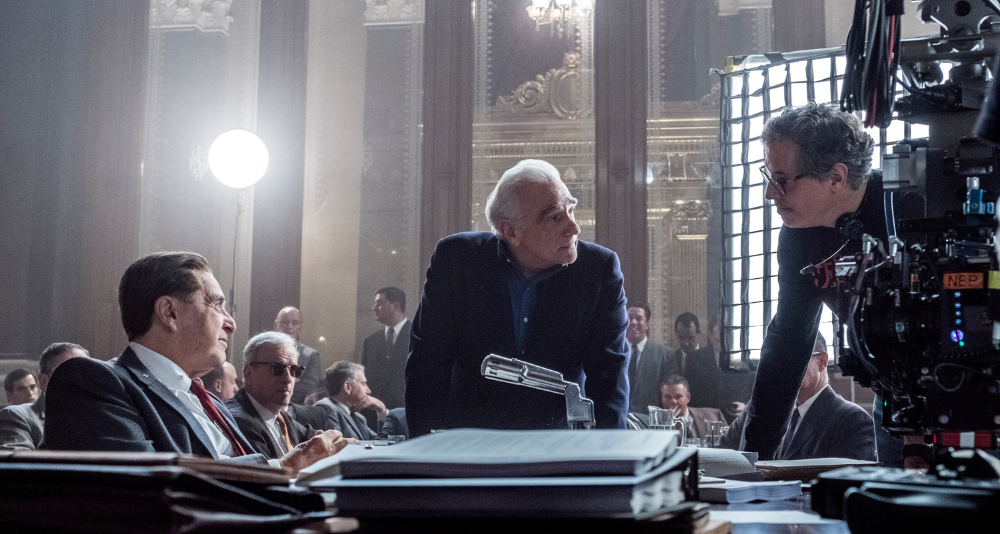
Director Martin Scorsese, known for his films The Departed, The Wolf of Wall Street, Goodfellas, and Gangs of New York among others recently explained why he believes comic book movies are a danger to American culture.

Lily Gladstone and Martin Scorsese behind the scenes of “Killers of the Flower Moon,” coming soon to Apple TV+.
While speaking with GQ, Scorsese asserted, “The danger there is what it’s doing to our culture because there are going to be generations now that think movies are only those—that’s what movies are.”
He continued, “They already think that. Which means that we have to then fight back stronger. And it’s got to come from the grassroots level. It’s gotta come from the filmmakers themselves.”
“And you’ll have, you know, the Safdie brothers, and you’ll have Chris Nolan, you know what I mean? And hit ’em from all sides. Hit ’em from all sides, and don’t give up. Let’s see what you got. Go out there and do it. Go reinvent. Don’t complain about it. But it’s true, because we’ve got to save cinema,” he elaborated.
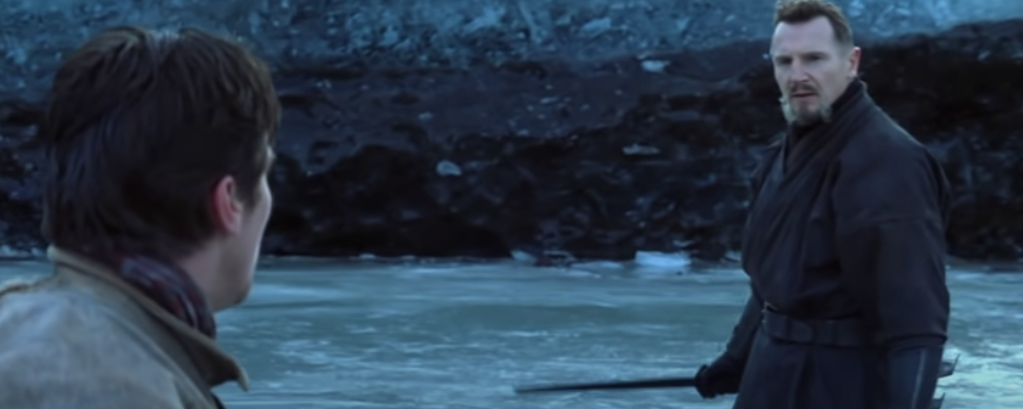
Christian Bale as Bruce Wayne and Liam Neeson as Ra’s al Ghul in Batman Begins (2005), Warner Bros. Pictures
He then went on to describe the types of comic book movies he’s specifically criticizing, “I do think that the manufactured content isn’t really cinema.”
Scorsese detailed, “No, I don’t want to say it. But what I mean is that, it’s manufactured content. It’s almost like AI making a film. And that doesn’t mean that you don’t have incredible directors and special effects people doing beautiful artwork. But what does it mean? What do these films, what will it give you? Aside from a kind of consummation of something and then eliminating it from your mind, your whole body, you know? So what is it giving you?”
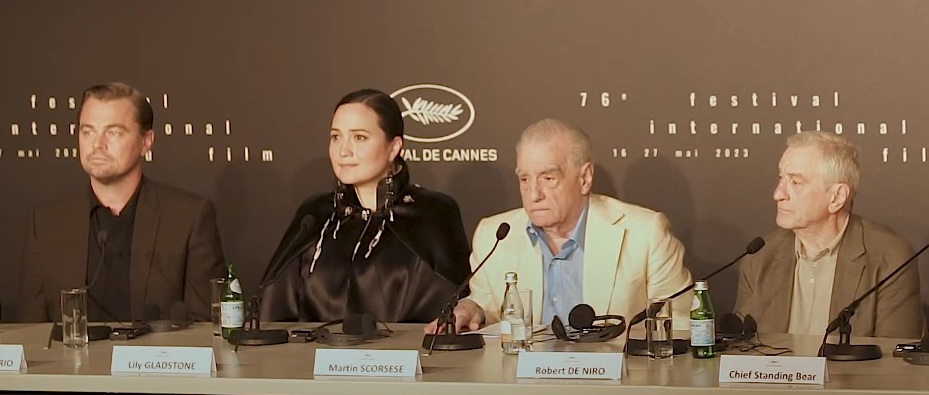
Killers of the Flower Moon press conference at 2023 Cannes Film Festival. Photo Credit: Canal22, CC BY 3.0 <https://creativecommons.org/licenses/by/3.0>, via Wikimedia Commons
From there, Scorsese made it clear he believes cinema is the creator saying something with a movie.
He explained, “I’m looking forward to new ways. It’s just, I got as far as this. And that’s what I do. That’s it. And if I could just muster up the energy, God willing, to make a couple more, one more maybe, and that’s it, okay? That’s as far as I got. You keep going until you can’t.”
“But what I mean is that you gotta rip it out of your skull and your guts,” he continued. “To find out what the hell you really…what do you really feel should be said at this point in life by you? You gotta say something with a movie. Otherwise, what’s the point of making it? You’ve got to be saying something.”
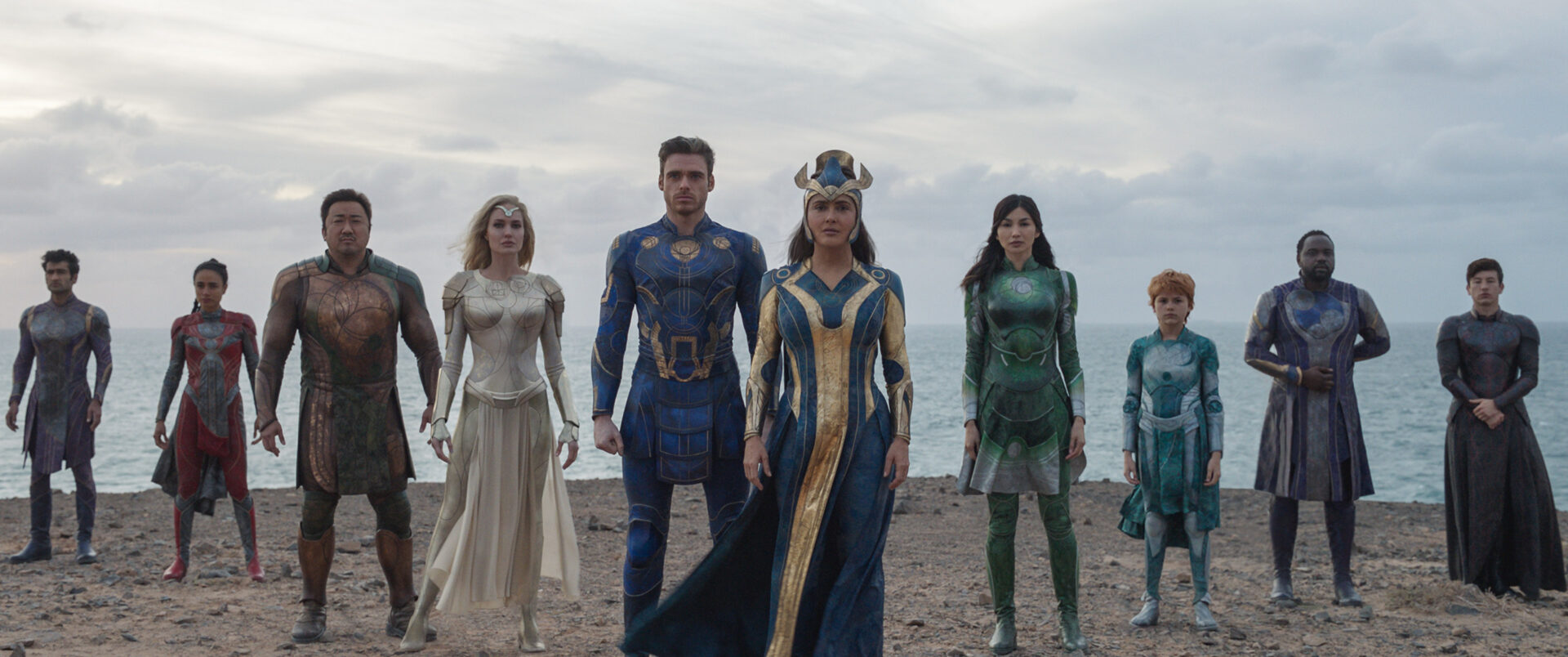
(L-R): Kingo (Kumail Nanjiani), Makkari (Lauren Ridloff), Gilgamesh (Don Lee), Thena (Angelina Jolie), Ikaris (Richard Madden), Ajak (Salma Hayek), Sersi (Gemma Chan), Sprite (Lia McHugh), Phastos (Brian Tyree Henry) and Druig (Barry Keoghan) in Marvel Studios’ ETERNALS. Photo courtesy of Marvel Studios. ©Marvel Studios 2021. All Rights Reserved.
RELATED: The Suicide Squad Director James Gunn Weighs In On Martin Scorsese’s Criticism Of Superhero Movies
Scorsese famously criticized Marvel films back in November 2019 in an opinion piece published in The New York Times.
In the article he explained why he believes Marvel movies are not cinema, something he shared with Empire in October 2019, “I don’t see them. I tried, you know? But that’s not cinema. Honestly, the closest I can think of them, as well made as they are, with actors doing the best they can under the circumstances, is theme parks. It isn’t the cinema of human beings trying to convey emotional, psychological experiences to another human being.”
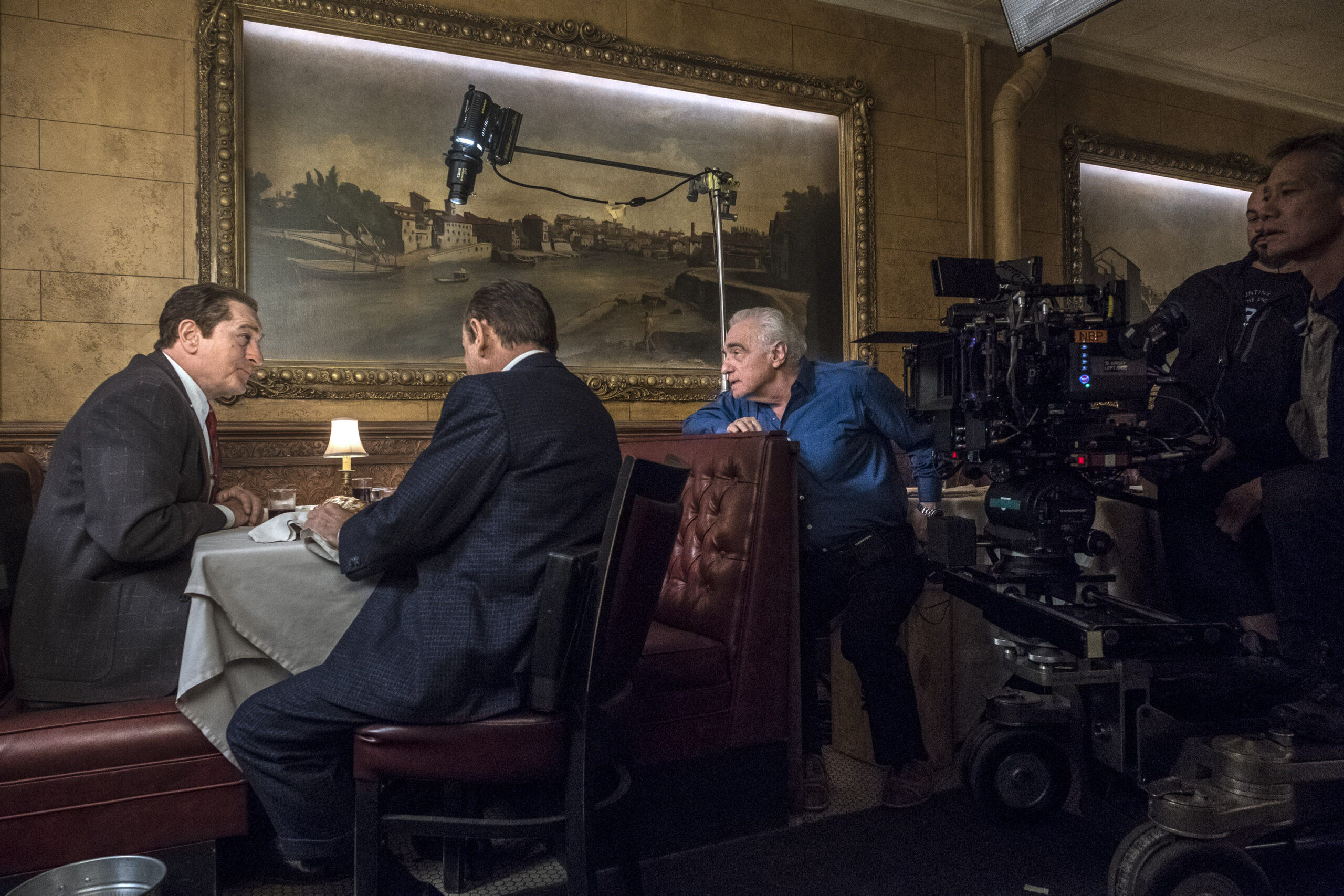
Martin Scorsese directs Robert De Niro and Joe Pesci in a scene from The Irishman. Photo Credit: Niko Tavernise.© 2019 Netlfix US, LLC. All rights reserved.
He wrote, “For me, for the filmmakers I came to love and respect, for my friends who started making movies around the same time that I did, cinema was about revelation — aesthetic, emotional and spiritual revelation. It was about characters — the complexity of people and their contradictory and sometimes paradoxical natures, the way they can hurt one another and love one another and suddenly come face to face with themselves.”
“It was about confronting the unexpected on the screen and in the life it dramatized and interpreted, and enlarging the sense of what was possible in the art form,” Scorsese continued.
He then declared, “And that was the key for us: it was an art form. There was some debate about that at the time, so we stood up for cinema as an equal to literature or music or dance.”
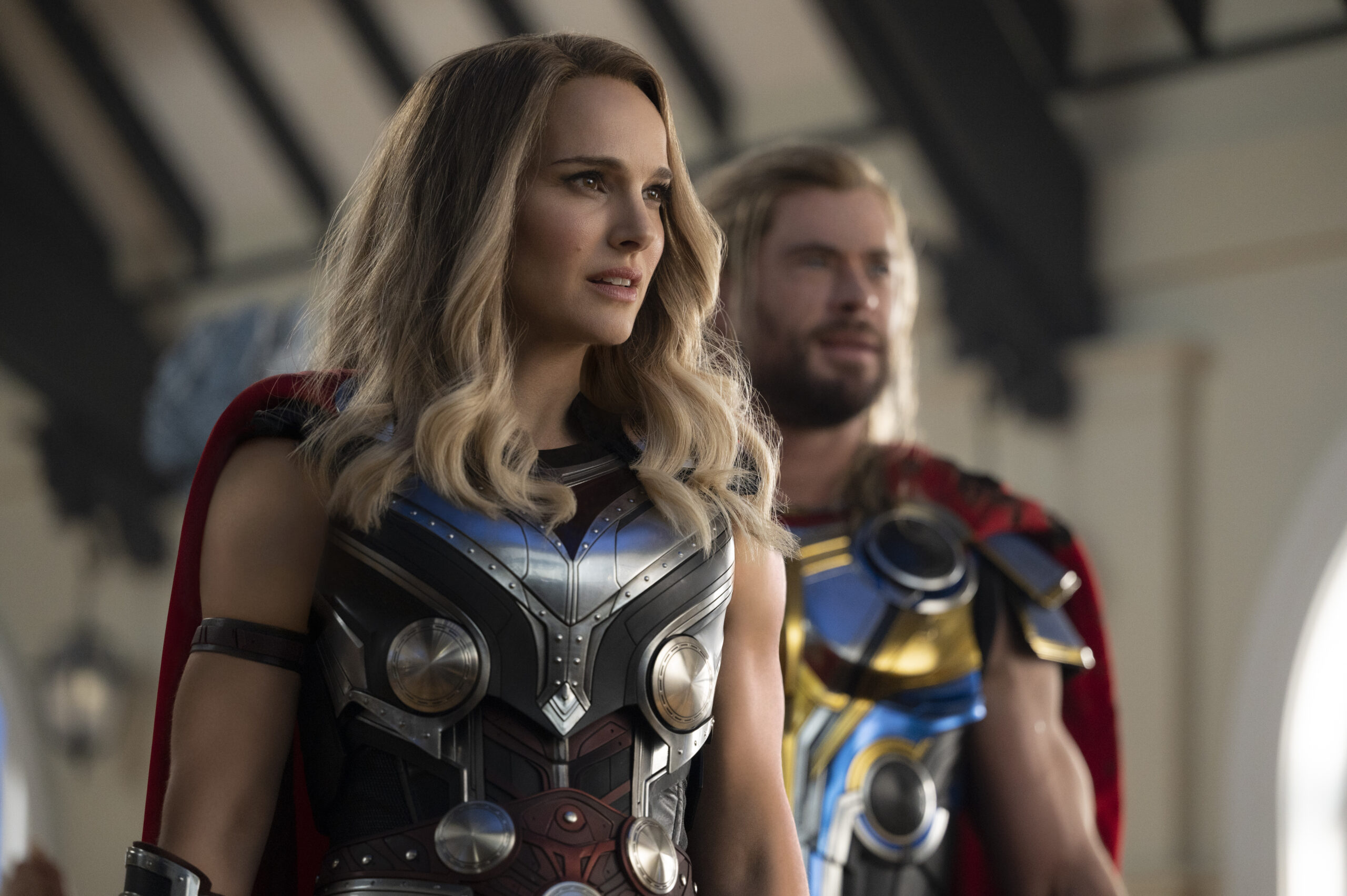
(L-R): Natalie Portman as Mighty Thor and Chris Hemsworth as Thor in Marvel Studios’ THOR: LOVE AND THUNDER. Photo by Jasin Boland. ©Marvel Studios 2022. All Rights Reserved.
After providing a number of examples of films he believes fits this mold he contrasted it with Marvel fair, “Many of the elements that define cinema as I know it are there in Marvel pictures. What’s not there is revelation, mystery or genuine emotional danger. Nothing is at risk. The pictures are made to satisfy a specific set of demands, and they are designed as variations on a finite number of themes.”
He elaborated, “They are sequels in name but they are remakes in spirit, and everything in them is officially sanctioned because it can’t really be any other way. That’s the nature of modern film franchises: market-researched, audience-tested, vetted, modified, revetted and remodified until they’re ready for consumption.”
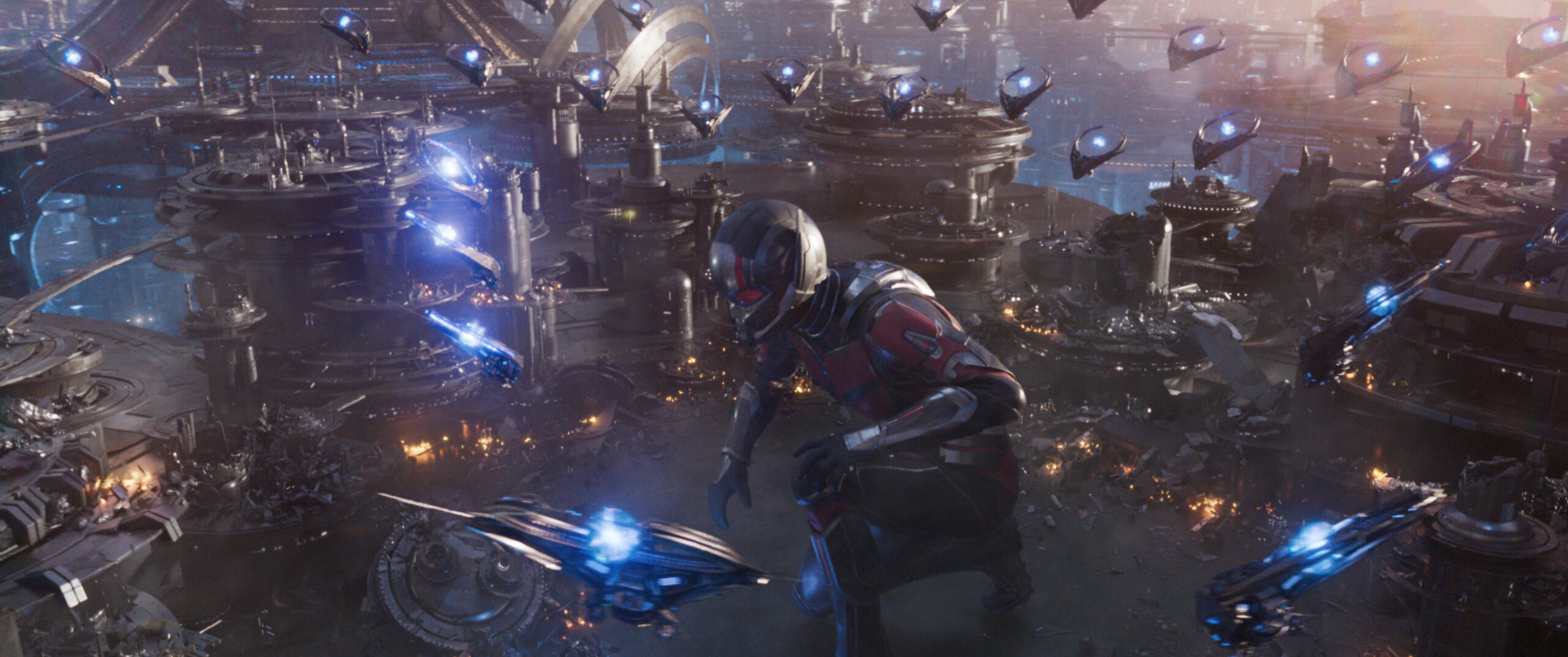
(L-R): Paul Rudd as Scott Lang/Ant-Man in Marvel Studios’ ANT-MAN AND THE WASP: QUANTUMANIA. Photo courtesy of Marvel Studios. © 2022 MARVEL.
He later reiterated this point, “Many films today are perfect products manufactured for immediate consumption. Many of them are well made by teams of talented individuals. All the same, they lack something essential to cinema: the unifying vision of an individual artist. Because, of course, the individual artist is the riskiest factor of all.”
To this end, he notes there are two different types of movies, “The situation, sadly, is that we now have two separate fields: There’s worldwide audiovisual entertainment, and there’s cinema. They still overlap from time to time, but that’s becoming increasingly rare. And I fear that the financial dominance of one is being used to marginalize and even belittle the existence of the other.”
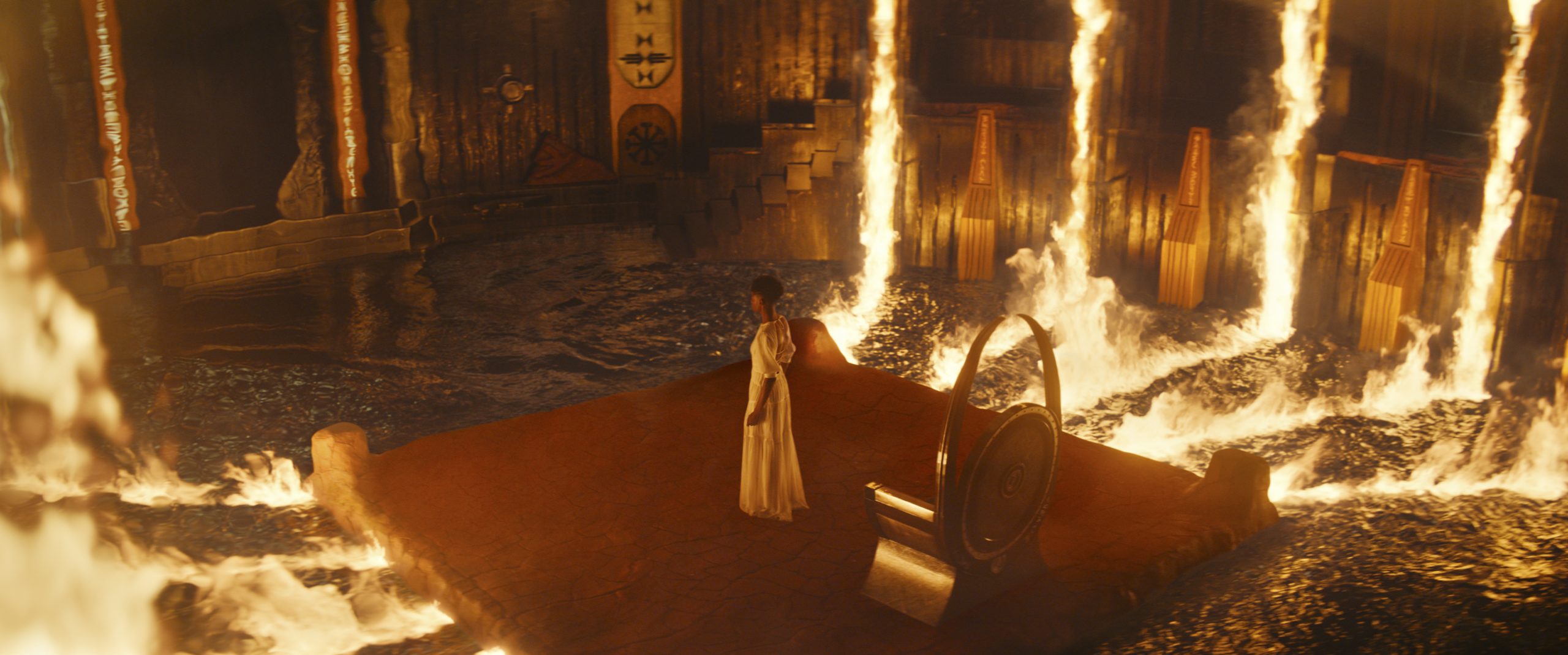
Letitia Wright as Shuri in Marvel Studios’ Black Panther: Wakanda Forever. Photo courtesy of Marvel Studios. © 2022 MARVEL.
What do you make of Scorsese’s explanation for why he views comic book movie fare as a danger to society?
NEXT: Black Manta Actor Yahya Abdul-Mateen II Says Starring In ‘Aquaman’ Movies Is “Clown Work”
More About:Movies
